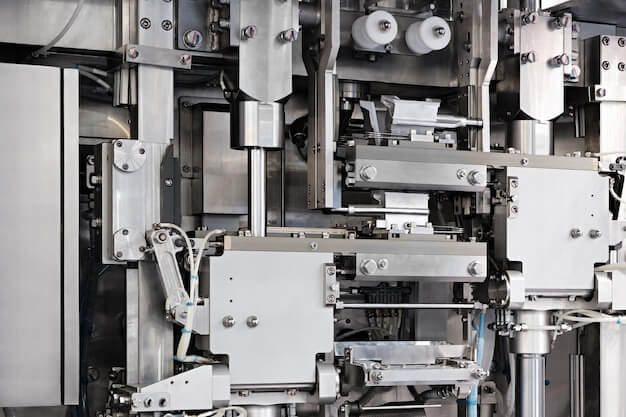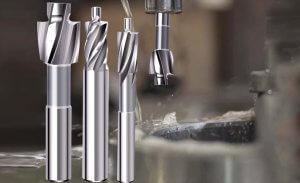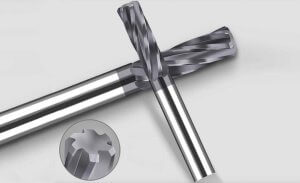Introduction to Aluminum 6061 and 7075 Alloys
In the world of metals and alloys, Aluminum 6061 and 7075 stand out due to their distinctive properties. Aluminum 6061 is a precipitation-hardened alloy consisting of magnesium and silicon as its major alloying elements. Known for its versatility, it offers an impressive yield strength rating, excellent corrosion resistance, and very good weldability.
On the other hand, Aluminum 7075 has zinc as a primary component which gives it higher strength but lower anti-corrosion properties compared to 6061. Though less workable than 6061, it has high stress-resistance making it integral in aircrafts structures where strength-to-weight ratio matters most. While both these aluminum grades share some similar attributes, key differences lie much on material’s property, usability, cost-effectiveness, durability and many more factors.
Understanding Aluminum Alloys
An alloy, simply put, is a blend of two or more metals that retains metallic properties. The secret to an alloy’s strength lies in the different attributes its elements bring to the table. In particular, aluminium alloys are favored in diverse sectors for their versatile characteristics such as lightness and corrosion resistance. In essence, 6061 and 7075 are just types of aluminium alloys with varying compositions.
To grasp their peculiarities, we first need to understand the science behind these aluminum alloys. It starts by mixing aluminium- a metal praised for its lightweight nature and excellent anti-corrosion properties- with other elements like zinc, copper, or magnesium. This not only fortifies the pure aluminium but also amends any deficiencies, unlocking outstanding featuressuch as exceptional strength-to-weight ratio or superior heat tolerance.
- Zinc: enhances strength
- Copper: improves hardness and resistance
- Magnesium: increases ductility
The role they play can vary drastically depending on the requirements of a specific application. For instance, Aluminium 6061 could be ideal for construction projects thanks to its great weldability. But if you’re after something for applications involving high stress and strain, then the harder yet slightly heavier Aluminium 7075 might make a better pick. Therefore, understanding different types of aluminium alloys will help you select the most suitable option for your project.
Comprehensive Look at Aluminum 6061
Aluminum 6061 stands out as a versatile and widely used aluminum alloy in the manufacturing industry. Its unique blend of properties makes it an excellent choice for a variety of applications, from structural components to automotive parts. For those seeking to leverage these properties in their projects, our online CNC service offers precision machining of aluminum 6061, ensuring high-quality outcomes tailored to your specifications.
Chemical Composition and Mechanical Properties
The chemical composition of Aluminum 6061 includes 97.9% aluminum, complemented by magnesium, silicon, chromium, and copper. This composition contributes to its moderate strength, excellent corrosion resistance, and good weldability. In terms of mechanical properties, Aluminum 6061 showcases a balanced mix of durability and flexibility, making it adaptable to various fabrication processes.
Applications of Aluminum 6061
- Building products
- Automotive parts
- Electrical products
- Bicycle frames
- Piping
Fabrication Considerations
When it comes to fabrication, Aluminum 6061 is known for its ease of machining and excellent formability. This alloy responds well to our online CNC service, allowing for the creation of complex parts with high precision. Additionally, its weldability makes it suitable for a wide range of applications, further enhancing its versatility.
Why Choose Aluminum 6061?
Choosing Aluminum 6061 for your project means selecting a material that offers a superb balance between strength, machinability, and corrosion resistance. Its wide range of applications and ability to be easily fabricated make it a go-to choice for engineers and designers alike. By utilizing our precision machining services, you can unlock the full potential of Aluminum 6061, ensuring your projects are executed to the highest standards.
Diving into Aluminum 7075
The aluminum alloy named 7075 is renowned across various industries due to its unique properties and composition. This alloy consists of larger amounts of zinc compared to most other alloys, with additional elements including small doses of magnesium and copper. The blend results in a highly durable, lightweight, and resilient material that can withstand high stresses and harsh environments.
This specific alloy presents superior hardness and strength characteristics, making it sought after for demanding applications such as aerospace components and military gadgets. For example, the aircraft parts industry incorporates this type of alloy into their production extensively because of its ability to provide maximum durability with minimal weight addition. Anotherexample would be outdoor equipment designs like hiking accessories, where durability under extreme conditions is critical.
- Composition: Primarily contains Zinc, along with smaller proportions of Magnesium and Copper.
- Properties: Resilient, hard, strong, and light-weighted.
- Uses: Commonly used in aerospace components, military hardware, and also outdoor gear (such as climbing or camping tools).
Comparing Aluminum 6061 and 7075
The two commonly used aluminum alloys, namely 6061 and 7075 display notably distinct characteristics. The principal advantage of the Aluminum 6061 derives from its superior weldability combined with heightened resistance to corrosion, which proves significant in applications where these features serve as priorities. Additionally, this alloy showcases high versatility across several manufacturing processes while retaining substantial strength when exposed to low temperatures. Notwithstanding such benefits, it is crucial to consider that compared to other alloys, its strength is relatively diminished.
- Aluminum 7075, on contrast, attains precedence over others in terms of strength properties, enhanced by zinc inserted during production, making it specially suited for applications demanding high-strength solutions. Conversely, the downsides incorporate moderately inferior formability, compromised welding capability alongside a susceptibility towards increased corrosion.
In essence, the choice between Aluminum 6061 and 7075 gets determined by prioritizing specific characteristics relevant to the application at hand.
Factors to Consider When Choosing an Alloy
In the selection process between Aluminum 6061 and 7075, a few key considerations should guide your decision. Primarily, these include cost, strength, and application of the alloy.
- Cost: It’s crucial to evaluate whether the chosen material suits your budget constraints. Generally, Aluminium 6061 tends to be less expensive than its counterpart, mainly because it is easier to produce and has widespread usage across many industries.
- Strength: If your project requires a higher strength-to-weight ratio, then Aluminium 7075 would be a more suitable option. This specific alloy boasts superior tensile strength and hardness when compared to 6061.
- Application: The intended use of the alloy significantly influences which type you select. For instance, while Aluminium 6061 proves excellent for welding and is commonly found in structural applications (like aircraft frames), Aluminium 7075 is best suited for high-stress parts where corrosion resistance is highly valued (such as gears and shafts).
In conclusion, remember that no single alloy fits every circumstance – understanding the unique properties of each aluminum types will guide you towards an informed choice tailored to your specific needs.
Personal Application: Choosing Your Own Alloy
When deciding between Aluminum 6061 and 7075 for personal applications, consider the unique properties of each as they align with your specific needs. For instance, if weight is a crucial factor in your project and you require an alloy that’s light but durable, Aluminum 6061 would be more suitable because it’s known for its good balance of strength-to-weight ratio.
However, if your application demands superior strength or hardness regardless of weight implications, Aluminum 7075 could prove most fitting as it’s acknowledged for being one of the strongest aluminum alloys available. Furthermore,
- Analyze the working environment of your application; high corrosion resistance is an advantage with Aluminum 6061 especially in moist settings.
- If your intent involves complex shaping or welding operations, again Aluminum 6061 due to its excellent formability and weldability would serve well.
- In contrast, reflect on whether increased toughness to withstand high stress conditions without deforming is needed, which Aluminum 7075 offers at best.
Remember both these alloys have been utilized widely across numerous industries due their exceptional characteristics. By evaluating what you prioritize more- lighter weight, easy workability, higher corrosion resistance, or sheer strength can lead you to your ideal alloy choice.
Other Articles You Might Enjoy
- Aluminum 6061 vs. 7075: Which Alloy Should You Choose?
Introduction – Understanding Aluminum Alloys The world of metallurgy presents a vast array of metals, each with its unique properties and specific uses. One such class of materials is the…
- CNC Material Efficiency: Aluminum 2024 vs. 6061 vs. 7075
CNC Machining and Material Efficiency: Aluminum 2024 vs. 6061 vs. 7075 CNC machining refers to a highly automated process widely employed in the manufacturing sector, using computer numerical control (CNC)…
- Aluminum Alloy Die Casting Surface Treatment
Aluminum Alloy die-casting has incomparable advantages over another casting. Such as perfect, light quality, corrosion resistance, etc, thus making it popular with the public, especially in the automotive lightweight, Aluminum…








